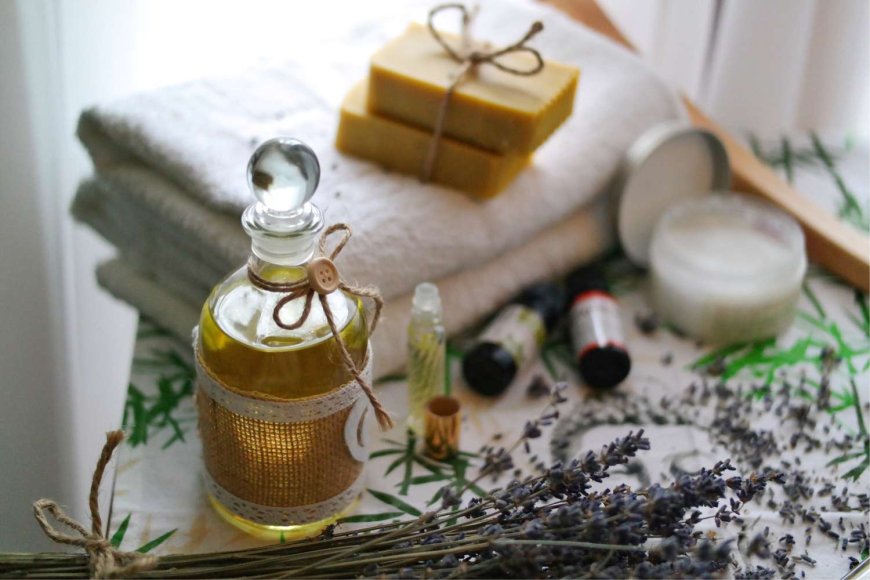The Ultimate Guide to Natural Hair Oils: Benefits, Uses & Tips
Forget the hype. Here’s a down-to-earth guide on natural hair oils, how to use them right, and why Afrocenchix is a trusted choice for real hair care.

Let’s be honest — hair care can get confusing real fast—so many products, fancy labels, and big promises. But sometimes the simplest things work best. Like good old natural hair oils. They’ve been used forever, and brands like Afrocenchix are proving there’s real power in simple, honest ingredients.
Afrocenchix isn’t about gimmicks. They make products for real people with real hair struggles — think dry ends, scalp issues, or hair that just won’t behave. If you’re tired of complicated routines or stuff that sits on your shelf collecting dust, natural oils might just be the game-changer.
Why Oils Matter, But Don’t Expect Miracles
First and foremost—oils are not magic, so to say. These are not products that will either mend splits or erase an application of bleach. However, they do prevent water loss and protect hair from further damage. Compare your hair with a concrete sponge that has drying properties. Oils can't add water to your hair but they do keep in whatever is there.
Oils also cut down friction. Dry hair is weak and snaps too easily when brushed or styled. A little oil makes the friction less. This is a major thing when you are trying to grow your hair or keep it healthy-looking.
Which Oils Are Worth Your Time?
Not all oils are created equal. Some get all the hype but don’t suit every hair type.
Coconut oil is the classic favorite. It can get inside the hair shaft and protect the proteins. But fair warning — if your hair is fine or not very porous, it might feel heavy or stiff. If it makes your hair crunchy, don’t force it.
Argan oil is lighter and great for frizz control and shine. It’s nice because it usually doesn’t weigh hair down and smells good. Just watch out for cheap fakes — real argan oil isn’t cheap.
Jojoba oil is interesting because it acts like your scalp’s natural oil. That means it’s perfect if you have a dry scalp but oily roots. It moisturizes without clogging pores or making hair greasy.
Sweet almond oil is the quiet achiever. Not flashy but reliable. It’s gentle, absorbs easily, and works for most hair types.
Castor oil — well, it’s thick and sticky. It’s famous for hair growth claims, but honestly, hair growth is mostly about your genes and health, not oils. Still, it can help soothe dry scalps when mixed with lighter oils.
What Makes Afrocenchix Different?
Afrocenchix produces not merely oils but blends made to suit textured hair, especially afro and curly hair. Their products seal moisture in with coconut, jojoba, and olive oils without leaving a greasy or heavy feeling. Unlike buying single oils bottled and sold, Afrocenchix blends are tested, balanced, and free of harmful chemicals.
Also, Afrocenchix knows that hair with needs beyond shine also needs to be protected; they make sure their oils help keep delicate curls and coils soft, manageable, and healthier with time.
How to Use Oils Without Making a Mess
A lot of people mess up because they expect oils to fix everything overnight, or they use way too much.
Try this instead: use oils as a pre-wash treatment. Put some on dry hair, especially the ends, and leave it for 20-30 minutes before washing. This keeps hair from drying out too much during shampooing.
After washing, when hair is damp but not dripping, apply a tiny bit to seal moisture. Focus on the middle to ends, not the scalp — unless your scalp is dry.
For scalp care, gently massage a light oil like jojoba a couple times a week. It feels nice and can calm flakes, but don’t expect instant miracles.
Mistakes to Watch Out For
-
Using too much oil is the biggest no-no. Start with one drop and add if needed.
-
Applying oil to soaking wet hair won’t work well. Water and oil repel each other.
-
Giving up too early. Oils work best when used regularly over weeks.
-
Thinking one oil suits everyone. What works for your friend’s thick curls might be terrible for your thin hair.
Quick Tips That Actually Work
-
Warm your oil a bit before use — it spreads better.
-
Mix oils to get the best of different benefits.
-
Use heavier oils in winter and lighter ones in summer.
-
Keep oils in a cool, dark place to keep them fresh.
Bottom Line
Natural oils for hair aren't miracle cures; rather, they serve to protect the hair, provided they are used aptly. Consider oils seriously when you've tired of gimmick-laden routines or products that never work. If you wish for a brand that knows textured hair and believes in true-to-nature ingredients, Afrocenchix is an excellent choice.
Sometimes the easiest and best way is the answer.
What's Your Reaction?
 Like
0
Like
0
 Dislike
0
Dislike
0
 Love
0
Love
0
 Funny
0
Funny
0
 Angry
0
Angry
0
 Sad
0
Sad
0
 Wow
0
Wow
0









































